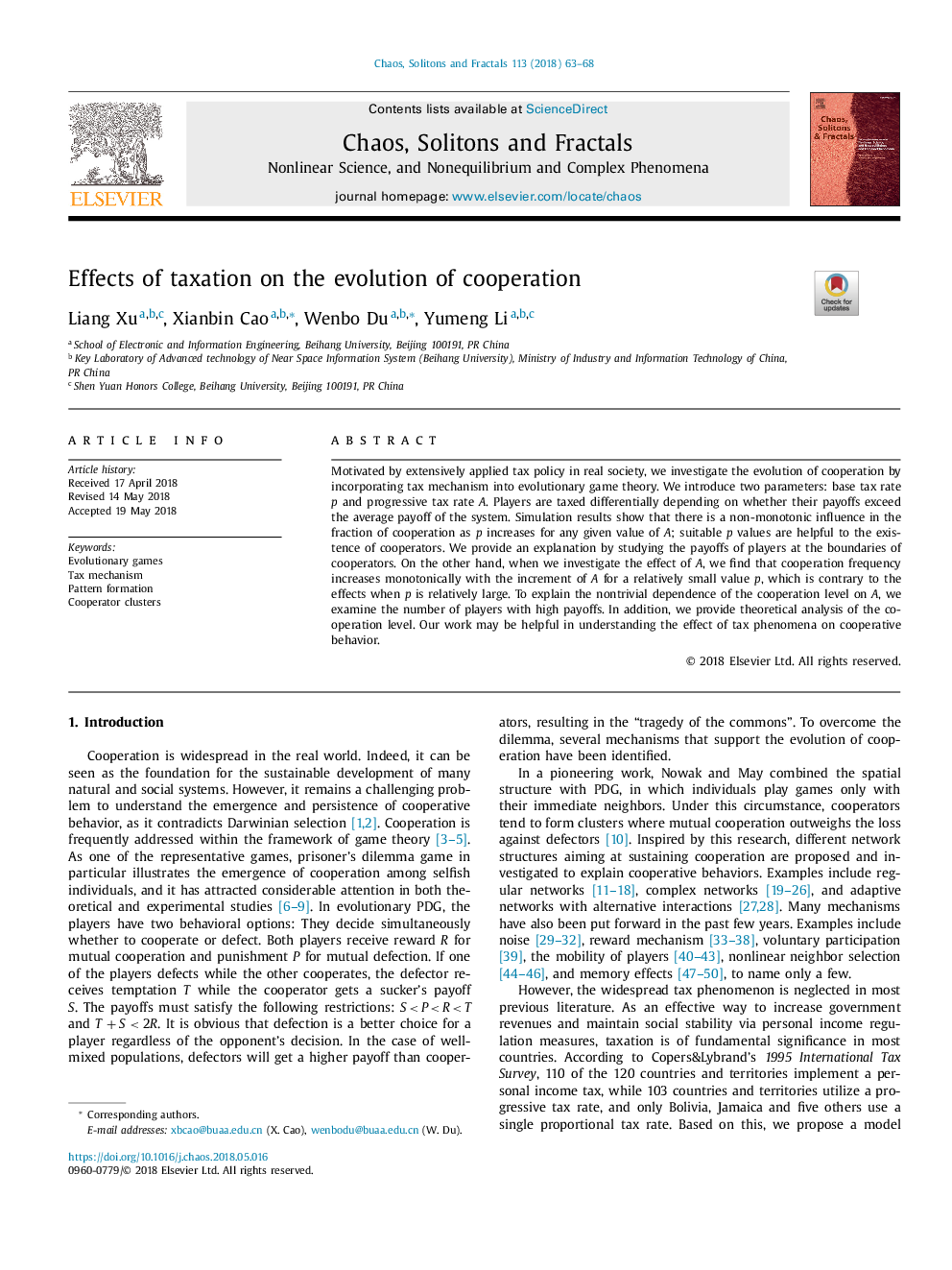| Article ID | Journal | Published Year | Pages | File Type |
|---|---|---|---|---|
| 8253342 | Chaos, Solitons & Fractals | 2018 | 6 Pages |
Abstract
Motivated by extensively applied tax policy in real society, we investigate the evolution of cooperation by incorporating tax mechanism into evolutionary game theory. We introduce two parameters: base tax rate p and progressive tax rate A. Players are taxed differentially depending on whether their payoffs exceed the average payoff of the system. Simulation results show that there is a non-monotonic influence in the fraction of cooperation as p increases for any given value of A; suitable p values are helpful to the existence of cooperators. We provide an explanation by studying the payoffs of players at the boundaries of cooperators. On the other hand, when we investigate the effect of A, we find that cooperation frequency increases monotonically with the increment of A for a relatively small value p, which is contrary to the effects when p is relatively large. To explain the nontrivial dependence of the cooperation level on A, we examine the number of players with high payoffs. In addition, we provide theoretical analysis of the cooperation level. Our work may be helpful in understanding the effect of tax phenomena on cooperative behavior.
Keywords
Related Topics
Physical Sciences and Engineering
Physics and Astronomy
Statistical and Nonlinear Physics
Authors
Liang Xu, Xianbin Cao, Wenbo Du, Yumeng Li,
